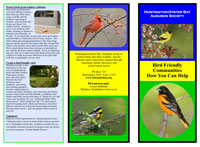Huntington-Oyster Bay Audubon Society's Tips on Creating Bird Friendly Communities
Why Create Bird Friendly Communities?
Birds are an indicator species: an essential component of healthy, functioning natural systems. Birds tell us if things are all right in our ecosystems.
Birds provide us with free ecological services:
- Consume weed plants and farm rodents
- Help control insect populations
- Pollinate and disseminate seeds.
- Scavenge carrion - nature's sanitation
Birds serve as important prey species for apex predators and keystone species.
Birds help us learn about the natural biological processes that produce the resources humans need and how we can manage them to provide a sustainable future
Birds are Good Business: according to the USFWS ~46 million birdwatchers in the US spend over $47 BILLION per year feeding, watching and traveling to enjoy birds.
Why else should we care about birds?

Because birds are beautiful.
What can I do to help birds?
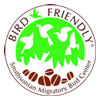 Drink
shade grown coffee - unlike sun grown coffee which
is produced in sterile monoculture environments devoid of
most wildlife species, shade grown coffee is grown beneath
an intact tree canopy which provides habitat to hundreds of
birds, mammals and other wildlife species. While you are at
it, help local people out too, and try to make sure the
coffee you purchase is fair trade.
Drink
shade grown coffee - unlike sun grown coffee which
is produced in sterile monoculture environments devoid of
most wildlife species, shade grown coffee is grown beneath
an intact tree canopy which provides habitat to hundreds of
birds, mammals and other wildlife species. While you are at
it, help local people out too, and try to make sure the
coffee you purchase is fair trade.
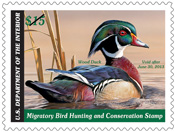 Buy
a duck stamp annually - officially known as the
Migratory Bird Hunting and Conservation Stamp, the “duck
stamp” is one of the most successful conservation
initiatives ever conceived and the most conservation bang
you can get for your buck. Ninety eight cents of every
dollar generated by the sale of these stamps go directly
towards the protection of habitat in the National Wildlife
Refuge system. To date, over $750 million has been used to
purchase or lease over 5.3 million acres of wildlife
habitat. There are approximately 553 refuges in the USA as
of this year.
Buy
a duck stamp annually - officially known as the
Migratory Bird Hunting and Conservation Stamp, the “duck
stamp” is one of the most successful conservation
initiatives ever conceived and the most conservation bang
you can get for your buck. Ninety eight cents of every
dollar generated by the sale of these stamps go directly
towards the protection of habitat in the National Wildlife
Refuge system. To date, over $750 million has been used to
purchase or lease over 5.3 million acres of wildlife
habitat. There are approximately 553 refuges in the USA as
of this year.
 Keep
your cat(s) indoors - the approximately 100 million
feral and free-roaming cats in the country kill tens to
hundreds of millions of birds and small mammals each year.
While there is little you can do to prevent feral cat
predation, you can play a role in reducing free-roaming cat
predation -- by keeping your pet cat(s) indoors. Please.
Keep
your cat(s) indoors - the approximately 100 million
feral and free-roaming cats in the country kill tens to
hundreds of millions of birds and small mammals each year.
While there is little you can do to prevent feral cat
predation, you can play a role in reducing free-roaming cat
predation -- by keeping your pet cat(s) indoors. Please.
Support conservation organizations - local, regional, and national conservation organizations, which play such a vital role in achieving conservation success, simply would not exist without the financial support of individuals who care about conservation.
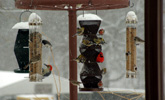 Conduct
citizen science - participating in the Christmas
Bird Count, the Breeding Bird Census, Project Feeder Watch
or one of several other data gathering programs is an
important way to contribute to science. These programs have
been instrumental in broadening our understanding of bird
populations such as population trends and changes in
distribution.
Conduct
citizen science - participating in the Christmas
Bird Count, the Breeding Bird Census, Project Feeder Watch
or one of several other data gathering programs is an
important way to contribute to science. These programs have
been instrumental in broadening our understanding of bird
populations such as population trends and changes in
distribution.
Limit your use or don't use pesticides - pesticides are designed to kill things and even when used according to label can kill unintended targets. Use alternatives to pesticides and make changes to the conditions in your lawn and garden to eliminate the need for pesticides.
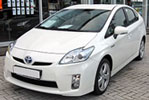 Make
other environmentally benign lifestyle changes - in
living our lives we all have an impact on the environment
upon which birds depend. There are many things you can do to
reduce your environmental footprint including recycling,
composting, using energy efficient light bulbs and
appliances. Drive a gas efficient car, take public
transportation or carpool. Buy locally grown produce and
products.
Make
other environmentally benign lifestyle changes - in
living our lives we all have an impact on the environment
upon which birds depend. There are many things you can do to
reduce your environmental footprint including recycling,
composting, using energy efficient light bulbs and
appliances. Drive a gas efficient car, take public
transportation or carpool. Buy locally grown produce and
products.
 Buy
recycled paper products - The fluffy toilet tissue
purchased by most Americans, and stocked in virtually all of
our supermarkets, requires pulp containing long wood fibers
found only in virgin timber (from live trees). When you use
premium tissue, you flush down the toilet part of a tree
that may have been felled solely for that purpose. And that
tree may have been harvested from Canada’s boreal forest,
where 57 percent of Blackburnian warblers breed—along with a
third of all North American songbirds.
Buy
recycled paper products - The fluffy toilet tissue
purchased by most Americans, and stocked in virtually all of
our supermarkets, requires pulp containing long wood fibers
found only in virgin timber (from live trees). When you use
premium tissue, you flush down the toilet part of a tree
that may have been felled solely for that purpose. And that
tree may have been harvested from Canada’s boreal forest,
where 57 percent of Blackburnian warblers breed—along with a
third of all North American songbirds.
Wear your binoculars proudly - when birding in popular birding spots, while stopping to get a bite to eat or pump gas keep your binoculars visible around neck so that business patrons know why you’re there. Your binoculars serve as a trigger to them to care about bird conservation in their local community since what they are benefiting economically from the presence of birds.
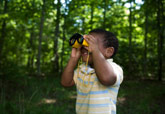 Take
a child on a hike or birding - we underestimate our
ability to influence others, and fail to realize how
impressionable children can be. Get kids excited about
birds, talk about how cool they are - their fascinating
migratory feats, complex songs and calls, and well developed
senses and coordination - and watch how your behavior piques
an interest. Remember, today’s children will grow up to be
tomorrow’s conservationists! You don’t have to focus just on
kids, talk up birds and nature to anyone you meet. Let them
feel your enthusiasm!
Take
a child on a hike or birding - we underestimate our
ability to influence others, and fail to realize how
impressionable children can be. Get kids excited about
birds, talk about how cool they are - their fascinating
migratory feats, complex songs and calls, and well developed
senses and coordination - and watch how your behavior piques
an interest. Remember, today’s children will grow up to be
tomorrow’s conservationists! You don’t have to focus just on
kids, talk up birds and nature to anyone you meet. Let them
feel your enthusiasm!
Protect birds from window collisions - More birds are killed each year from striking windows than from any other direct cause of death, and the problem is growing as window sizes increase and houses get larger. Use window decals / stickers or cover your windows with blinds, awnings or shutters to minimize the reflection of the sky. One company that manufactures window stickers that have proven effective at reducing collisions is WindowAlert, available on the web at www.windowalert.com.
